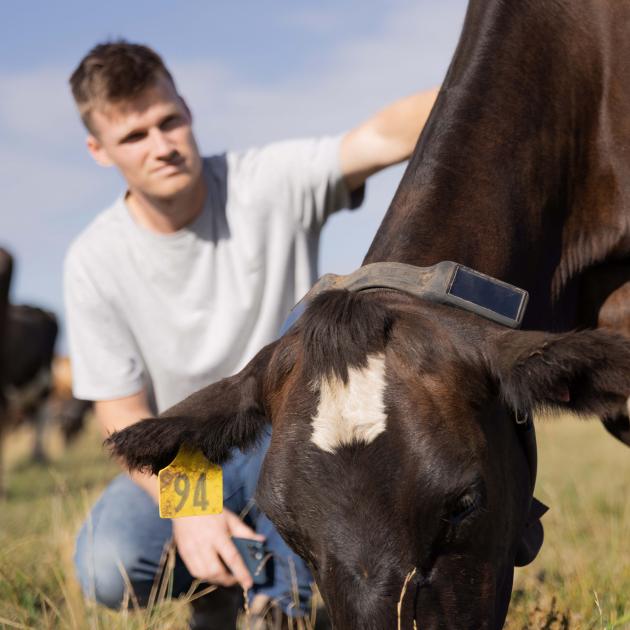
He likes to borrow a quote from his friend and mentor Peter Beck, the founder of Rocket Lab, who says "everyone calls you crazy until you do it and then they call it vision". That was particularly true for Rocket Lab, which was an "even more outrageous" idea than Halter, he said.
Halter, founded in 2016, was a product-based company which used artificial intelligence to guide cows around a farm, set up virtual fences and detect health events — among a host of other functions — with the ultimate aim of creating a future for farming that was simpler, more ethical and sustainable.
Halter recently announced its farms achieved a median 70.9% six-week in-calf rate, 4.1 percentage points higher than the 15-year industry median of 66.8% reported by Dairy NZ. With the current focus on farmers reducing costs on-farm, Halter had also recently dropped its pricing by 37%.
A dairy farmer’s son from Morrinsville, Mr Piggott studied mechanical engineering at university and decided his dream job was at Rocket Lab which, at that stage, had not launched anything. He got turned down twice before being successful on his third attempt after approaching Mr Beck directly.
After a year, he left Rocket Lab — at that stage a fast-growing start-up — to start Halter, the tenure having provided exposure to the idea that money could be raised from investors, a great team could be built, and a very ambitious mission chased.
He was "forever grateful" to Mr Beck who had been a massive help to him, both as a mentor and a friend, and remained on the Halter board. Most impressively, he found time for others.
Mr Piggott described the Halter journey as "wild".
"A lot of fun. I wake up every day and love my job."
New Zealand had such a good reputation for efficient farming and pasture-based farming. Halter’s premise, as a company, was it was not too specific about what the solution was — "we’re just trying to solve problems that farmers have, we don’t really mind what they look like".
In 2023, Halter’s customer base doubled and it expanded into the beef industry. Seeing the impact of that had been "very cool" and, as a dairy farmer, he had enjoyed learning about the beef sector.
Halter’s first beef product was much simpler than its dairy products, which was intentional from a cost perspective. It enabled beef farmers to set breaks daily and rotationally graze their property with virtual fencing. That was the starting point and there would be more products over time, he said.
No work had been done on sheep, which was not on the company’s road map. There were a lot of cows to focus on.
With a team of 160 or 180 people — "I lose count" — many of whom were product engineers, the team was still working hard on continuing to improve the dairy product. Sometimes its customer base screamed for a certain feature.
With Halter, any dairy farmer could grow and harvest more grass, nail residuals, virtually fence and shift cows, reduce labour, detect heats, and monitor the health of every animal. It was everything they needed to run a high-performing farm, Mr Piggott said.
While he joked he now had a few more grey hairs, there was nothing more inspiring than going to work every day to work on something that had a real-world impact. Farming was an industry that was highly critical to society, super understated and overlooked and under served, he said.















